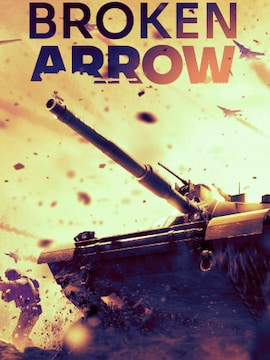Wanna play video games, but you’re low on cash? Learn more about Intel HD Graphics 530, a solid, time-tested choice for less-demanding titles. Video games are getting increasingly more popular and you may want to dive into this hobby yourself. However, to get started, you’ll need a PC equipped with sufficient hardware.
One of the required elements is the graphics card which may come in the form of a dedicated card (GPU) or a card integrated with the processor (iGPU). Although integrated graphics cards aren’t really meant to be used for playing games, they can serve as a cheap alternative to a dedicated GPU in a range of older or less demanding games.
To put things into perspective, you can expect Intel HD Graphics 530 to run every third game from the list of over 10,000 most popular games, but it will run only one-tenth of the games at recommended settings or higher; in the remaining ones, you’ll have to stick to the lowest.
With that being said, if your main focus is older games or titles that revolve more around pure gameplay and you’re not especially interested in photo-realistic visuals, immersive worlds, and supreme physics simulation, you may be positively surprised about the performance of 530.
Basics
Intel HD Graphics 530 belongs to the sixth generation family of Intel processors, which is widely known as “Skylake”. Skylake is also the name of the first step within the Skylake family, sharing its 14 nm microarchitecture with other Skylake steps: Kaby Lake, Coffee Lake, Whiskey Lake, and Comet Lake.
Skylake became the last “tock” in line within Intel’s “tick-tock” design model, where “tick” stood for a shrinking process of the previous microarchitecture, while “tock” meant introducing a new microarchitecture; after Comet Lake, Intel decided to switch to a different philosophy of CPU development.
Skylake was a successor to the 22 nm Haswell family and was later succeeded by the 10 nm Palm Cove, Sunny Cove, and Willow Cove microarchitectures.
Intel HD Graphics 530 Technical Specifications
Let’s take a closer look at 530’s specs.
| Specification | Details |
|---|---|
| Clock Speed | Baseline: 350 MHz, Boost: 1150 MHz |
| RAM Support | Up to 64 GB, 64/128 Bit |
| Power Usage (TDP) | 15 W |
| API Compatibility | DirectX 12_1, Shader Model 6.4, OpenGL 4.6, OpenCL 2.1, Vulkan |
| Optimal Gaming Resolution | Lower resolutions recommended (e.g., 720p for satisfying experience) |
| 4K Support | Supported, but not optimal for gaming |
| Competitors | GeForce 830M, Radeon HD 7690M, Radeon HD 8750M |
Evaluating Gaming Performance
As one of the integrated graphics solutions, Intel HD Graphics 530 is not an optimal choice for a comfortable gaming experience, especially if we’re talking about modern AAA games that tend to cause trouble even for dedicated graphics cards belonging to the lower-performance tiers.
Gaming on the 530 is still possible to a certain degree, as long as your demands for games are not particularly high. Running modern 3D games may be out of the question, but some older 3D games should run just fine, as long as you’re okay with lowering the visual settings to the absolute minimum.
In the case of most 2D titles, which are usually much less demanding, you’ll have a much better time. This includes various real-time and grand strategy games, puzzles, simple platformers, and point-and-click adventures, to name a few examples.
With that being said, Intel HD Graphics 530 performs surprisingly well and could be a solid option if you’re super tight on budget and don’t want to spend extra on a dedicated graphics card.
| Game | Release | Genre | Settings | avg fps | |
|---|---|---|---|---|---|
 | Grand Theft Auto V | 2015-04-14 | Adventure | low settings | 41 |
 | Assassin's Creed IV: Black Flag | 2013-11-21 | Adventure | low | 27 |
 | Sniper Elite 3 | 2014-06-27 | Shooter | Low | 34 |
 | Watch Dogs Complete Edition | 2014-05-27 | Adventure | Low | 38 |
 | Metro Redux Bundle | 2014-08-27 | Horror | Low | 39 |
 | Layers of Fear (2016) | 2016-02-15 | Adventure | Low | 28 |
 | Horizon Zero Dawn | Complete Edition | 2020-08-07 | Adventure | Low | 18 |
 | God of War | 2022-01-14 | Action | Low | 13 |
 | Cyberpunk 2077 | Ultimate Edition | 2023-12-05 | RPG | Low | May refuse to launch |
 | Genshin Impact Blessing of the Welkin Moon 30 Days | 2020-09-28 | MMORPG | Low | 44 |
 | VALORANT | 2020-06-02 | Shooter | Low | 111 |
 | Forza Horizon 5 | 2021-11-09 | Racing | Low | 21 |
 | Starfield | 2023-09-06 | RPG | Low | May refuse to launch |
Boosting Gaming Outcomes on Intel HD Graphics 530
Performance in games for Intel HD Graphics 530 is satisfactory in older and less demanding titles but leaves a lot to be desired in the newer and more complex ones. However, with some clever tricks, it is possible to squeeze out some extra power juice out of 530, which may result in a few percent FPS increase in your favorite games.
- Options to improve performance:
- Lower in-game settings, particularly shadows and fog effects.
- Update drivers to the most recent version.
- Add more RAM to your PC.
- For laptops, set the power plan to “high performance”.
- As an ultimate solution, consider overclocking your CPU.
- Overclocking can increase iGPU power but carries risks.
- Potential outcomes:
- Best-case: Enhanced performance without issues.
- Slightly worse: Stability issues and occasional system crashes, which can be mitigated by reverting or adjusting clock frequencies.
- Worst-case: Possible CPU damage not covered by warranty, although modern CPUs have failsafe mechanisms like throttling to prevent permanent damage.
- Monitor CPU temperatures to prevent overheating.
- Avoid exceeding 85 degrees Celsius as a rule of thumb.
References:
- https://en.wikipedia.org/wiki/Skylake_(microarchitecture)
- https://www.intel.com/content/www/us/en/support/products/88345/graphics/processor-graphics/intel-hd-graphics-family/intel-hd-graphics-530.html
- https://www.notebookcheck.net/Intel-HD-Graphics-530.148358.0.html




